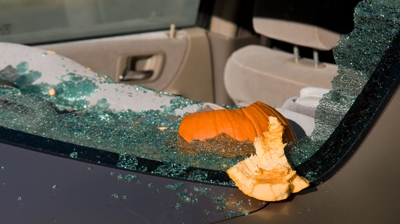Car accidents can be stressful and overwhelming, especially when you’re not at fault. You may be left with questions about what to do next and how to navigate the complex claims process to ensure you receive the compensation you deserve.
If you or someone you love was involved in a car accident that wasn’t your fault and you need help recovering compensation for injuries or damaged property, the car crash attorneys at Niemeyer, Grebel and Kruse are here to help. Call (314) 350-1900 for your free case review.
What do do immediately after your accident
First, assess injuries for both yourself and other parties. If anyone needs urgent medical care, call 911 immediately. Safety is the primary concern, so move your vehicle to the side of the road if it’s feasible. Activate your hazard lights to signal to other drivers that there’s a situation requiring caution.
Next, contact the police. Their report will provide an unbiased account of events, which is invaluable when proving fault later on. Even minor accidents can result in complicated legal and insurance matters, so having an official record is crucial.
After ensuring everyone’s safety and notifying authorities, exchange information with the other party and gather evidence at the scene.
Exchange information with other parties
Once you’ve ensured everyone’s immediate safety and notified the police, the next critical step is exchanging information with the other driver. This is not just a formality; it’s a legal requirement that lays the groundwork for any subsequent claims or legal actions.
Obtain the following details from the other driver:
- Full name
- Contact information
- Insurance company and policy number
- Driver’s license number and expiration date
- License plate number and vehicle description
In the digital age, it’s often convenient to use your smartphone to take photos of the other driver’s license, insurance card, and license plate. However, be sure to also jot down this information in case digital files become corrupted or lost.
If there are witnesses, collect their names and contact details as well. Their testimony can be instrumental in resolving disputes about how the accident occurred and who is at fault.
Avoid discussing fault or assigning blame at this stage. Statements made can be used against you later, so keep the conversation factual and to the point.
Finally, when collecting evidence and, when the police arrive, ensure they take down all this information as part of their official report. Having a law enforcement record of the facts strengthens your case, especially in a situation where fault may be contested.
Evidence collection and documentation
Effective documentation can tip the scales in your favor during insurance negotiations or legal proceedings. Here’s how to go about it:
Photograph the scene
Use your smartphone to take comprehensive photos of the accident scene. Capture various angles of vehicle damage, skid marks, road signs and traffic signals. These images serve as a visual record and can help reconstruct the incident.
Document injuries
If you or anyone else has sustained injuries, photograph them as soon as possible. These images could substantiate your medical claims later. Of course, prioritize getting medical attention over taking photos.
Record witness statements
If there are witnesses, request that they provide accounts of what they saw. An unbiased third-party perspective can validate your description of the event and help establish fault.
Take notes
Write down specific details about the accident — weather conditions, time of day, road quality and any distractions or unusual circumstances. These notes can refresh your memory when recounting the incident to insurers or legal counsel.
Obtain a police report
Always request a copy of the police report. It provides an impartial account of the accident, listing involved parties, witness statements, and sometimes even an initial assessment of fault. Review the report for accuracy and dispute any discrepancies immediately.
By meticulously gathering evidence, you solidify your position, whether you’re dealing with insurance adjusters or pursuing a personal injury claim. It’s not just about proving your lack of fault; it’s about ensuring you receive the compensation you’re entitled to.
Dealing with insurance companies
Navigating insurance claims post-accident can be complex, but it’s essential for compensation. Here’s how to effectively engage with insurance providers while safeguarding your interests.
Report the accident promptly
Contact your insurance company as soon as possible. Delays can result in complications or even denials when filing a claim. Provide them with the basic facts and let them know you’ve already initiated the documentation process.
Be cautious in conversations
Insurance adjusters will reach out to gather information. While they may appear friendly, remember their ultimate aim is to minimize payouts. Be factual but guarded. Avoid speculating about fault or disclosing unvetted information.
Submit your evidence
Forward all collected evidence — photos, witness statements and the police report — to your insurance company. This substantiates your claim and can expedite the settlement process.
Understand your policy
Review your insurance policy to understand what is covered and what’s not. Whether it’s car repairs, medical bills, or rental vehicles, knowing your entitlements enables you to advocate for yourself more effectively.
Track all correspondence
Maintain a record of all interactions with the insurance company, including calls, emails and documents exchanged. This paper trail is critical if disagreements about the claim arise later.
Be prepared to appeal
Insurers may initially offer lower settlements. If the offer doesn’t adequately cover your losses, be prepared to negotiate or appeal. Your attorney will be crucial in this phase to ensure you’re adequately compensated.
Insurance matters are often long-drawn and stressful, but they are a necessary step toward financial recovery. Handle them with the same meticulousness you applied to evidence collection, and consult professional legal advice to navigate any complexities.
When to seek legal assistance
An attorney can validate your claim by using evidence, expert testimony, and witness statements, ensuring you receive appropriate compensation for your damages, whether they’re medical bills, property loss, or long-term injuries.
Engaging legal assistance gains further importance when multiple parties are involved or when you’re unfamiliar with the procedural aspects of insurance claims and potential litigation. Should you encounter low-ball offers, delays, or outright denials from an insurance company, an attorney can put weight behind your negotiations. Their expertise often prompts insurance companies to adopt a more forthcoming approach to settlement discussions.
Ultimately, legal assistance isn’t just about preparing for court; it’s about leveling the playing field from the outset. Having professional guidance gives you strategic leverage and peace of mind, helping ensure that you’re adequately compensated in the aftermath of a car accident.
Contact Niemeyer, Grebel and Kruse for a free case review
If you’re facing challenges with your car accident claim, Niemeyer, Grebel and Kruse can provide expert guidance and support to help you navigate the process. As a St. Louis personal injury firm specializing in auto accident cases, they offer free case reviews to evaluate your claim and provide the expertise you need.
Don’t hesitate to contact their office at (314) 350-1900 to discuss your case and take the first step toward receiving the compensation you deserve.






